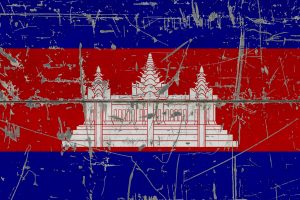Last year, this journalist wrote a column about a pending clean out of corrupt officials and the reception was mixed, which is not unusual. Cambodia’s ruling elites – often trenchant critics – didn’t bat an eyelid but the country’s harshest detractors did whine.
The story was leaked and among the patronizing civil society groups, most were skeptical. Some even leveled accusations of favoring a government line because corrupt bureaucrats are rarely held to account, if at all, in Cambodia.
But the more moderate, including diplomats and academics, knew what was happening and had their own concerns, which I shared, that a purge would not extend to the highest of levels and be used instead to weed out competition from within the ruling Cambodian People’s Party.
Ever since Hun Sen passed his job as prime minister to his eldest son Hun Manet in August of last year, a clean out has been conducted by a government run by the offspring of former ministers who are keen to assert themselves. And in some respects, it has reached the higher echelons.
Early scalps included the Kep City Governor Kheng Yuan, the commander of the Ream Naval Base, Adm. Ouk Seiha, Brig. Gen. Keo Rath Mony, and many senior police officers amid allegations that ranged from corruption to possession of drugs. Others followed.
More recently Ly Sameth, a longtime advisor to Hun Sen, was sacked after allegedly accepting a bribe from Korn Sokkay, the governor of Lvea Em district in Kandal province, who was also terminated.
This week, the head of the notorious Prey Sar prison, who was not named, joined the exit queue after a video of inmates partying went viral and Duong Dara, another Hun Sen assistant, was next after being charged with fraud.
Their sins may or may not be genuine but in a country where impunity is measured by political connections there was no one to catch them when they fell. In other words, they were already in the bad books or their crimes were so overwhelmingly blatant there was nowhere to hide.
Such was the case of the Oknha – a Cambodian equivalent of a British lord – Srey Sina, who shot dead a young couple following a dispute over a clothesline, sparking a well-justified public outrage that resonated across the country.
Srey Sina carried the Oknha title but the Cambodian Oknha Association (COA) immediately issued a statement saying that he was not one of theirs. That’s not always the case.
When it comes to allegations leveled against the highest of high, Cambodian officials scamper, double down and deploy their favorite technique: deny, deny, deny. And that is the case with the businessman and COA president Ly Yong Phat and Prince Group chairman Chen Zhi.
Both have invested heavily across Cambodia in a range of industries. They have also been investigated and tied to allegations of human trafficking, online scams, and money laundering. The United States Treasury Department has sanctioned Ly Yong Phat over his connections to scam operations, a scourge that has upset Beijing as much as it has Washington.
This led to Newsweek magazine retracting a 17-page paid-for advertorial that featured an interview with Andy Seng, managing director of Phat’s LYP Group, who did his best to promote Cambodia as an investment destination.
Retractions of news stories – when journalists get it wrong – are a part and parcel reality of the media industry. A retraction of a paid-for advertorial is most unusual and says a lot.
Despite international opinion, the defense of Ly Yong Phat by officials and the COA was emphatic and delivered with the kind of bluster that only a state media apparatus can muster. As nervous scribes at Fresh News reported, Phat’s human rights, honor, and dignity had been violated.
There have been many journalists, civil society groups, and foreign countries who have written and spoken out about the industrialization of human trafficking and scam compounds that emerged in Cambodia during the COVID-19 pandemic.
Among the most prominent is the journalist Mech Dara, who was arrested just as the clamor of innocence that surrounded Ly Yong Phat began to ebb. Charges are sketchy but his arrest resulted in perhaps more negative headlines than any of the 100-odd political prisoners currently behind bars.
Human trafficking is as dreadful as it is lucrative and unless reined in, Cambodia will remain where it already sits, on the wrong side of history, as the highest of high continue on their merry way despite a purge of sorts.
































